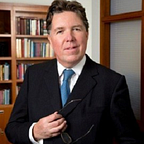Keys to Financial Stability by Paul Tucker Miami
Obtaining financial stability is like maintaining good health. The means you do today that influence the viewpoint tomorrow. Like dieting and exercise will prompt a trimmer shape on the off chance that you adhere to a program, your financial viewpoint will just improve through spending plans and investment funds. It all comes down to basic math. You need to spend less than you make and save for the future. Consider these 3 keys to financial stability.
Budgeting
Budgeting is the first step to financial stability. You need to form a systematic plan for the expenditure of your fixed-income during a given period. Budgeting is an important part of any money maintenance plan, but it is most critical when money is tight. Paul Tucker Miami, Look at your spending needs and habits. Make a list of everything that must be paid for, and compare it against what you’ll have coming in for that time period. Make the math work, and ensure it doesn’t get fluffy. You can be creative, but be realistic. It’s better to overestimate your monthly budget than end up with not enough left to meet your expenses.
Watch Where the Dollars Go
Keep a record of all your spending, especially your cash expenses. Always get a receipt so you can keep track of every dollar spent. Mint.com is a great program that allows you to keep track of your purchases, giving you a better idea of what you’ve already spent versus your actual income.
Trimming
The next step is to look at your spending habits and see what can be cut. If you eat lunch out every day, do the math and add up what it costs you per paycheck. You’ll find that you can save a good hundred dollars just by switching to cold cuts. Watch those espressos on the go while your own espresso machine still gathers dust in the basement. Still getting together with the gang after work for a few suds? Invite the gang over to your living room and a 6-pack for a recessionary happy hour. You don’t have to put quarters into your own home jukebox.
Paul Tucker Miami was formerly the Deputy Governor of the Bank of England and were they having responsibility for financial stability and served on the Bank’s Monetary Policy Committee. Any small costs you can trim off your budget really add up. It’s the little things that offer the best most savings because there are so many of them. Tackle your own budget with a red pen. Trim those numbers down to the bone.
